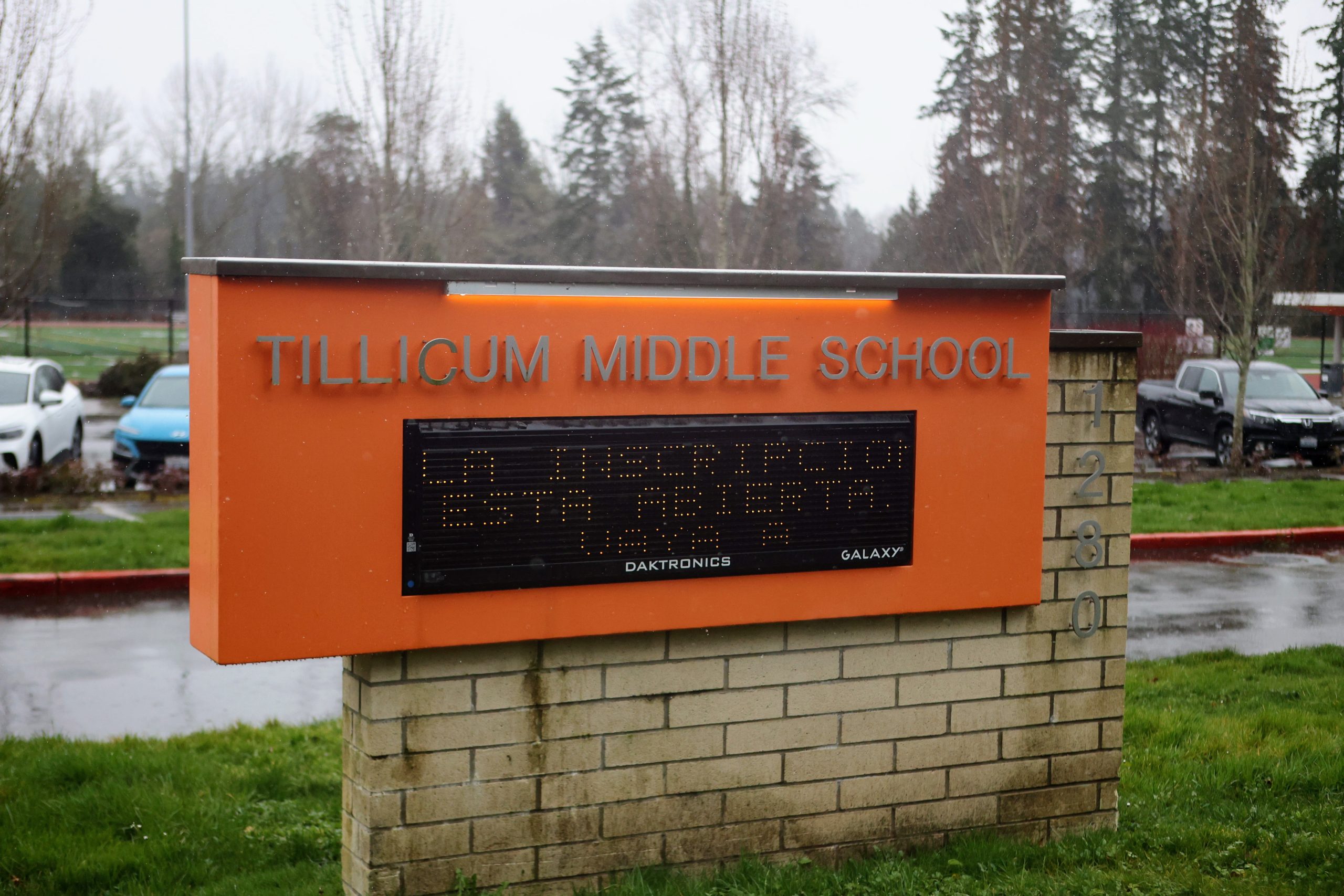Across Washington, communities face an emerging threat: Immigration and Customs Enforcement (ICE) raids at their schools.
In January, the Trump administration rescinded a directive that prevented ICE and Customs and Border Protection (CBP) officials from law enforcement activities in “sensitive” areas like schools and churches, according to the Department of Homeland Security (DHS) website.
School districts in Washington have responded in varied ways: some have provided comprehensive guidance, and some have provided none at all.
Shortly after the DHS announcement, Bellevue School District Superintendent Kelly Aramaki shared with his superintendent blog support for undocumented students and reiterated standing policies, such as not collecting students’ or their families’ immigration statuses.
Joy Haverstick, a Tillicum Middle School counselor and interventionist, said she is aligned with and supported by these policies from the Bellevue School District, which is just east of Seattle.
Haverstick said these policies include office staff protocol if an ICE officer walks into a school’s main office and how teachers should interact with ICE.
“I’m glad that the policy and procedure has been spelled out and it’s very clear,” she said. “I definitely think that our district is supporting our undocumented students.”
In her role, Haverstick engages with a large portion of the student body, so she has a wide perspective on how the issue is impacting students.
“When our kids hear stories about everything that’s going on in the news, their takeaway is that they don’t matter. And that’s sad,” Haverstick said. “It is our job as educators to make our community safe, inclusive, and valued.”
Haverstick said little learning happens when kids feel fearful. She also said students use immigration status as something to bully other students about.
“These are human beings. Words have a big impact on our kids. It’s not our kids’ fault what happened or how they came to be,” Haverstick said. “They’re just here to learn.”
The situation is different in Onalaska, a small town outside Chehalis in southwestern Washington’s Lewis County.
Sydney Ferari-Zimmerman, a first-year family and consumer sciences teacher, said teachers have received limited guidance on what to do if ICE enters their schools or what to tell students.
“I’m terrified,” she said.
Immigration issues are hardly talked about amongst her students, with conversations instead about things like pop culture, Ferari-Zimmerman said.
She added that although her students aren’t of voting age, it is important for them to keep up with the issues.
Her student population at risk under DHS actions—a population she says she can count on two hands—is small but mighty.
“They’re the students that show up on a daily basis,” Ferari-Zimmerman said. “They have really good grades. They want to be there.”
Runelle Davis, a sixth-grade teacher at Grant Elementary in eastern Washington’s Douglas County, isn’t as concerned about ICE activity. Her school is part of the Eastmont School District.
“I don’t feel like my job is changing or anything is different,” she said.
Students stayed home in January to protest presidential actions, Davis said. Other than that, she said she hasn’t heard much from students or seen a change in their behavior.
Yet, Davis feels her district is prepared. She has access to resources that she can share with students.
Those resources include organizations like Walla Walla Immigrant Rights Coalition.
Abby Muro, the organization’s executive director, said they are focused on amplifying immigrant voices and providing resources for the immigrant community to thrive.
The coalition shares information about its events through schools and also connects people to immigration legal services.
Muro said immigration legal service requests have skyrocketed since the presidential election, with families using those services to update their immigration status.
The coalition also encourages families to create an immigrant family planning guide. This procedure identifies who will take care of children and other family members in case of a family member’s deportation.
Overall, Muro wants businesses, organizations and anybody on the front line to know their rights and that ICE officers must have a judicial warrant before detaining someone.
In Washington state, laws like the Keep Washington Working Act shift the responsibility of immigration enforcement from the state level to the federal level. The act prohibits immigration status alone from being cause for police action.
The state has also issued guidance relating to student privacy and immigration enforcement on campuses.
“Washington state is and will remain a state that is unequivocally committed to supporting all of our students and their families,” said Washington Superintendent of Public Instruction Chris Reykdal in a statement in January.

Cameron Delfin is a junior at the University of Washington where he studies Journalism and Marketing with a minor in International Business. He seeks to connect people through storytelling.
